Thinking, Fast and Slow
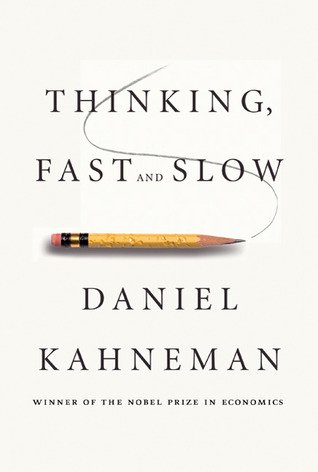
Author: Daniel Kahneman
In the highly anticipated Thinking, Fast and Slow, Kahneman takes us on a groundbreaking tour of the mind and explains the two systems that drive the way we think. System 1 is fast, intuitive, and emotional; System 2 is slower, more deliberative, and more logical. Kahneman exposes the extraordinary capabilities—and also the faults and biases—of fast thinking, and reveals t….Read More
22 Books Similar to Thinking, Fast and Slow

Superforecasting: The Art and Science of Prediction
A New York Times BestsellerAn Economist Best Book of 2015"The most important book on decision making since Daniel Kahneman's Thinking, Fast and Slow."—Jason Zweig, The Wall Street Journal Everyone would benefit from seeing further… Continue Reading Posted in: Business Planning & Forecasting, Cognitive Psychology, Management & Leadership, Politics & Social Sciences, Science & Math
The Power of Habit: Why We Do What We Do in Life and Business
A young woman walks into a laboratory. Over the past two years, she has transformed almost every aspect of her life. She has quit smoking, run a marathon, and been… Continue Reading Posted in: Bibliography, Change (Psychology), Social Aspects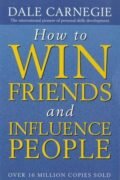
How to Win Friends and Influence People
In his exuberant, conversational style, best selling author, Dale Carnegie offers practical advice and techniques for how to get out of a mental rut and make life more rewarding. His… Continue Reading Posted in: Persuasion (Psychology), Self Actualization (Psychology), Self-Help
The Upside of Irrationality: The Unexpected Benefits of Defying Logic
“Dan Ariely is a genius at understanding human behavior: no economist does a better job of uncovering and explaining the hidden reasons for the weird ways we act.” — James… Continue Reading Posted in: Bibliography, Logic, Reasoning (Psychology)
The Righteous Mind: Why Good People Are Divided by Politics and Religion
Why can’t our political leaders work together as threats loom and problems mount? Why do people so readily assume the worst about the motives of their fellow citizens? In The… Continue Reading Posted in: Bibliography, Psychology, Religion And Politics, Religious
Man’s Search for Meaning
Man's Search for Meaning has riveted generations of readers with its descriptions of life in Nazi death camps and its lessons for spiritual survival. Between 1942 and 1945 psychiatrist Viktor… Continue Reading Posted in: Concentration Camp Inmates, Judaism, Meaning (Psychology), Medical Psychotherapy TA & NLP, Psychological Aspects
The Man Who Mistook His Wife for a Hat
The Man Who Mistook His Wife for a Hat is populated by a cast as strange as that of the most fantastic fiction. The subject of this strange and wonderful… Continue Reading Posted in: Case Studies, Foreign Language Reference, Mental Disorders, Pathological, Psychology
Sapiens: A Brief History of Humankind
100,000 years ago, at least six human species inhabited the earth. Today there is just one. Us. Homo sapiens. How did our species succeed in the battle for dominance? Why… Continue Reading Posted in: Cognition And Culture, Human Beings, Science
How an Economy Grows and Why It Crashes
How an Economy Grows and Why it Crashes uses illustration, humor, and accessible storytelling to explain complex topics of economic growth and monetary systems. In it, economic expert and bestselling… Continue Reading Posted in: Financial Crises, Money
Economics: The User’s Guide
From the internationally bestselling author and prizewinning economist--a highly original guide to the global economy.In his bestselling 23 Things They Don't Tell You About Capitalism, Cambridge economist Ha-Joon Chang brilliantly… Continue Reading Posted in: International Economics, Macroeconomics, Microeconomics
Outliers
Why are people successful? For centuries, humankind has grappled with this question, searching for the secret to accomplishing great things. In this book, Malcolm Gladwell takes us on an invigorating… Continue Reading Posted in: Bibliography, Communication & Social Skills, Cultural Psychiatry, Decision-Making & Problem Solving, Psychological Aspects
Zero to One: Notes on Startups, or How to Build the Future
If you want to build a better future, you must believe in secrets.The great secret of our time is that there are still uncharted frontiers to explore and new inventions… Continue Reading Posted in: Diffusion Of Innovations, Entrepreneurship
The Art of Thinking Clearly: Better Thinking, Better Decision
The Art of Thinking Clearly by world-class thinker and entrepreneur Rolf Dobelli is an eye-opening look at human psychology and reasoning -- essential reading for anyone who wants to avoid… Continue Reading Posted in: Cognition, Psychological Aspects, Text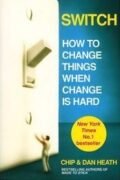
Switch: How to Change Things When Change Is Hard
Why is change so difficult and frightening? How do you create change when you have few resources and no title or authority to back you up? Chip and Dan Heath,… Continue Reading Posted in: Bibliography, Business & Organizational Learning, Business Decision Making, Organizational Innovation, Self Actualization (Psychology)
The Brain that Changes Itself: Stories of Personal Triumph from the Frontiers of Brain Science
An astonishing new science called neuroplasticity is overthrowing the centuries-old notion that the human brain is immutable. Psychiatrist and psychoanalyst, Norman Doidge, M.D., traveled the country to meet both the… Continue Reading Posted in: Anatomy, Case Reports, Case Studies, Neuroscience, Rehabilitation [Mesh]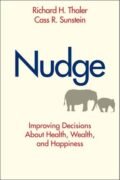
Nudge: Improving Decisions About Health, Wealth, and Happiness
Every day, we make decisions on topics ranging from personal investments to schools for our children to the meals we eat to the causes we champion. Unfortunately, we often choose… Continue Reading Posted in: Bibliography, Economics Psychological Aspects, Electronic Books, Medical Occupational & Organizational Psychology, Sociology of Social Theory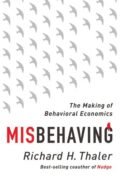


Leave a Reply
You must be logged in to post a comment.